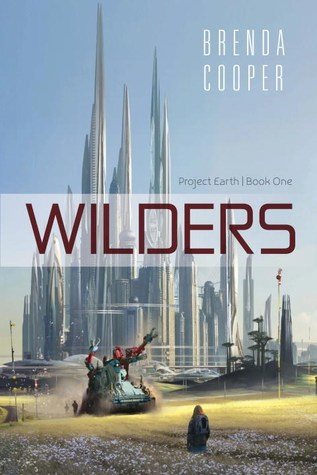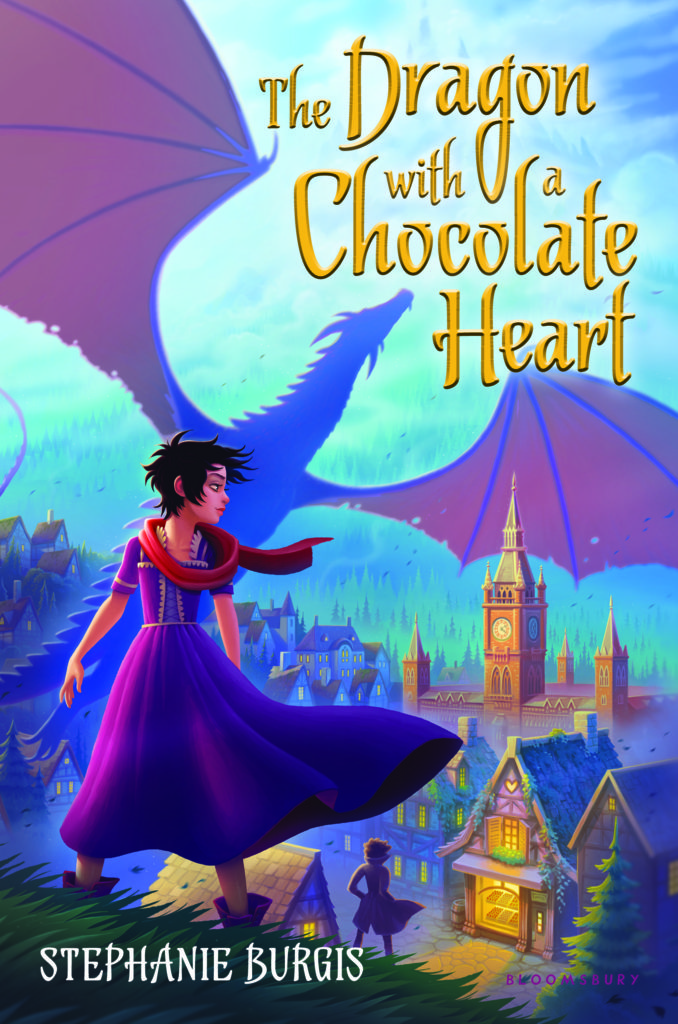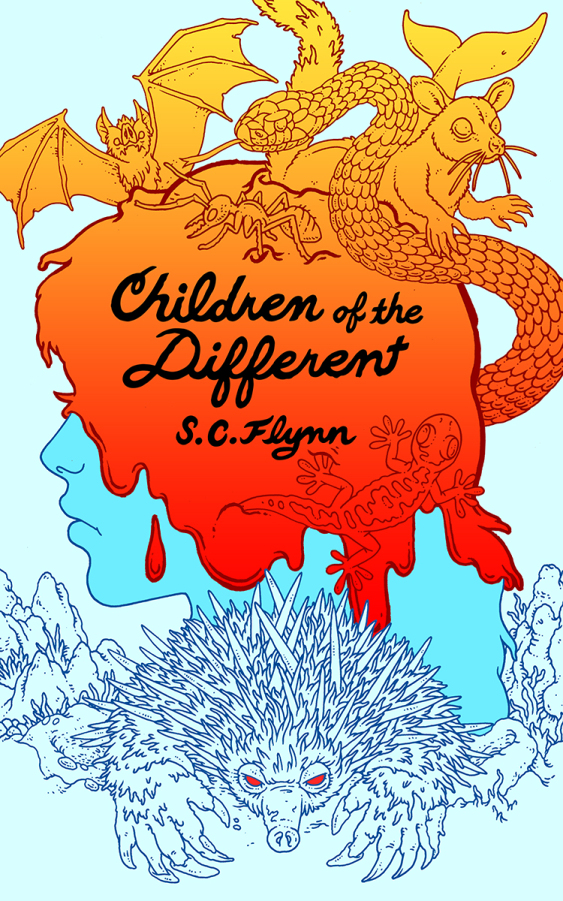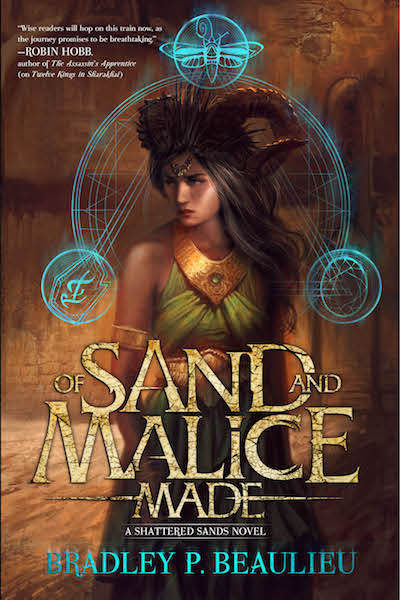Book Review: Wilders, by Brenda Cooper

Author Brenda Cooper describes herself as a futurist and as being passionate about the environment, and you’d better believe she’s dead serious about it. Which is to say that, unlike most of the books I’ve gotten to review for Skiffy and Fanty this month, Wilders is many things, but fun isn’t one of them. Like so much ecological science fiction (or ecopunk, if that’s a thing? I’m pretty sure it’s a thing), Wilders is written in deadly earnest. Look elsewhere for lighthearted escapism. Refreshingly, though, unlike a lot of books I’ve stumbled across in this genre, Wilders manages not to get too preachy. Herein, Cooper works under the assumption that her readers are proficient singers in the choir, and proceeds to focus on telling us a story rather than trying to persuade us that wilderness matters, that the environment matters, that extinction hurts us, etc., etc.
Guest Post: Switching Between Lanes, by Stephanie Burgis

I think that every writer who’s ever read publishing advice online has probably come across at least one article on the importance of “branding.” Apparently, to be really smart, writers ought to be figuring out the one thing that they’re best at — or the one thing that connects the most with potential readers — and then sticking to it no matter what, so that fans will know exactly what they’ll get from every new novel by that author. I know I sound a little snarky in that description, but I’m actually not arguing with it as a strategy. I’m sure that it is a smart, practical way to build a successful career. Unfortunately, I’ve never been much good at sticking to my own lane. There are too many wonderful genres that I love as a reader, and I get frustrated whenever I try to shut out all but one of them in my writing life. Before I sold my first books, I published dozens of adult f/sf short stories, and I drafted full-length novels for both adults and kids. Then my first agent, back in 2005, took me on with an adult historical fantasy manuscript, and it felt like my first big step onto the publishing ladder. Aha! I’m almost there!
Book Review: Children of the Different by S.C. Flynn

Stories dealing with those often-painful transitions of adolescence dominate mainstream young adult fiction. On the genre side of the fiction divide, post-apocalyptic settings contain characters constantly beset by external dangers, characters that simultaneously must struggle to adapt themselves to their civilization’s collapse. In both cases these tales combine peripheral threats with internal struggles, shaping varying degrees of character growth and/or plot development. Thus, it’s fitting that S.C. Flynn combined aspects from both sides of young adult fiction’s spectrum in his debut novel Children of the Different. Though comprised of many familiar elements, the novel is aptly named. Flynn’s story feels fresh and intriguingly different. With inspirations from analytical philosophy and biological metamorphosis, Children of the Different explores the transformation of his young characters into adulthood within post-apocalyptic settings that merge science fiction and mythical fantasy.
Top 10 Posts and Episodes for April 2017

Time for another statistics post! Here’s what readers loved on our blog or podcast throughout April 2017: Top Posts: Metropolis (1927), Feminism, and Influence by Stina Leicht Beyond the Cliché Shelf: Making Characters Vibrant and Unexpected by Aliette de Bodard Breaking News: Peter Jackson to turn The Silmarillion into a 14-movie epic by Michael J. Martinez Book Review: CUCKOO SONG by Frances Hardinge (Reviewed by Daniel Haeusser) Ten Post-Apocalyptic Novels Written by Women by Nicolette Stewart The Intersection: AI and Creator-bias by Stina Leicht Book Review: Wothwood by Natania Barron (Reviewed by Paul Weimer) Book Review: The Weight of the World by Tom Toner (Reviewed by Paul Weimer) Book Review: Too Like the Lightning by Ada Palmer (Reviewed by Paul Weimer) Book Review: The House of Binding Thorns by Aliette de Bodard (Reviewed by Paul Weimer) Top Episodes: Signal Boost #1: George Sandison (2084) and Alexandra Pierce (Luminescent Threads: Connections to Octavia Butler) 321. The Immigrant Experience in SFF w/ Sabrina Vourvoulias, Rose Lemberg, and Bogi Takács #55. Attack the Block (2011) — A Shoot the WISB Subcast w/ Tiara W. #03. The Last Command — Thrawn and On and On (A Star Wars Literary Podcast) 317. Disability in SF/F — A Discussion w/ Sarah Chorn and Elsa Sjunneson-Henry 313. Looking Back, Moving Forward: Anticipating 2017 #57. Get Out (2017) w/ Faridah Gbadamosi and Andrew Hackley — A Shoot the WISB Subcast 294. Mazes and Monsters (1982) — A Torture Cinema “Adventure” 320. Alex Wells/Acks (a.k.a. Social Justice Biker Witch) — Hunger Makes the Wolf (An Interview) 304. Scott Lynch and Elizabeth Bear (a.k.a. The Rakish Rogue and the Sky Marshall) — An Interview What did you enjoy the most? Let us know in the comments!
Book Review: Of Sand and Malice Made by Bradley Beaulieu

Before she started her quest for vengeance against the Twelve Kings of Sharakhai, Ceda had a different encounter with the supernatural otherness that infuses the world of the Shattered Sands. Early in her career as a pit fighter, her exploits, and a chance encounter, brought her to the attention of Rümayesh. Rümayesh is an ehrekh, a creature of fire and chaos living in Sharakhai under the guise of humanity. Her interest and fascination with Ceda, however, as with all who attracted her attention, is a corrosive, sadistic and destructive one, as befits her nature. Ceda found herself having to protect much more than just herself in order to ward against the creature’s manipulations. This is the story told in Of Sand and Malice Made, by Bradley Beaulieu. Of Sand and Malice Made isn’t really a prequel as I expected at the outset, but rather a side story to Ceda’s main tale. While Twelve Kings of Sharakhai has a number of threads in different time periods, Of Sand and Malice made is a much more straightforward narrative, set in a single time frame in between a couple of the time frames in Twelve Kings. Ceda is already the White Wolf, but relatively young and new to the arena, her youth being much more noteworthy than her skill. Ceda is still fighting for a place there, fighting to make her name. The novel does well in showing that she’s not the force of nature that she is in the “present” portions of Twelve Kings in Sharakhai.
Book review: Firebrand, by A.J. Hartley

I hate, hate, hate coming into a series in the middle (which means no, I haven’t read the first novel in this series, Steeplejack, but I sure plan to soon!), but I have a good personal track record with author A.J. Hartley, so I knew that if anyone could write a good middle book that still stands on its own it would be he. My assumption, in this case, proved absolutely correct, in case you’re wondering. Firebrand is the second volume in Hartley’s steampunk-flavored, young adult series “Alternative Detective”, and takes place a few months after the events in the first novel, which took a young woman from “steeplejack” (a person who works up high on the roofs and sides of very tall buildings, mostly cleaning chimneys but also doing repairs and maintenance and other sundry jobs) to amateur detective, and landed her in the very informal employ of a member of her city-state’s Parliament. As this novel opens, Anglet Sutonga is now enjoying an unaccustomed level of financial security and autonomy, but her sense of duty and survival instincts don’t let her get too comfortable, so as the novel opens, she is chasing an infamous cat burglar over the rooftops of Bar-Selehm, which leads her into a whole new mystery of linked and nested conspiracies, exploitation, human trafficking, treason and, of course, murder.

